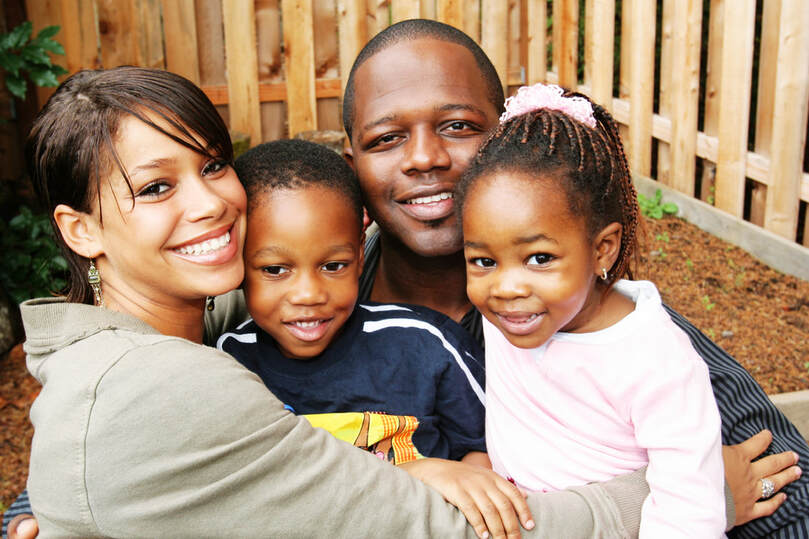Discovering God's Calling in Parenting a Child
Opening Prayer
|
Holy God, you know the challenges we face raising our children in this world today. Jesus loved spending time with children and was full of compassion for all the parents he met. Guide this reflection so that I can see myself and my family with the same compassion that Jesus does.
May your Holy Spirit inspire me to see where I am being called to grow as I try to raise my child(ren) with hearts full of love and goodness. Amen. |
Scripture Theme
|
Shepherd the flock of God that is among you, exercising oversight, not under compulsion, but willingly, as God would have you; not for shameful gain, but eagerly; not domineering over those in your charge, but being examples to the flock. (1 Peter 5:2-3)
|
Introduction
|
As a parent, you grow as your child grows. You learn as your child learns. You grow in faith as your child grows in faith. Your calling shifts as your child’s world expands. Now that your child is no longer a baby, how are yougrowing? How is yourcall shifting?
At certain times in your life you may have carried the assumption that God calls you once, for just one purpose. Don’t miss the call, or you might spend the remainder of your days in meaningless mediocrity. In reality, it is safe to say that God calls us many times throughout the seasons of our lives, and each call challenges us to stretch further than we might have anticipated or imagined. In the book Families at the Center, Jolene Roehlkepartain writes about what parents tend to experience as their child moves out of babyhood and into childhood. When children begin to resist and explore limits, parents become tested themselves. How will they respond to these displays of power while treasuring their child from a faith perspective? Parents can talk with children about God, pray with them, take them to worship services, introduce children to people of faith, and love their children deeply while setting clear boundaries, all what children need for their faith journey (2 to 5 years). Roehlkepartain goes on to sum up the next stage of childhood. During the elementary-school years, parents support their child’s spiritual and overall development, strengthening ties to other people and to important institutions, such as church and school. When parents pray, eat together as a family, attend worship services, and have conversations about faith, they help strengthen their child’s faith journey (6 to 10 years). Congratulations! Your baby has become a child, and your call in parenting has shifted. As you respond to this call, your child will show you facets of God that you have not seen or experienced before and will surely astound you. Place your trust in God, say ‘yes’ to the call as best you can, and give it your all. |
What's Changing?
|
When your first child was born and you became a parent, you surely experienced significant change. As your baby becomes a child, the change is not so dramatic, but very real none the less. In his book Managing Transitions, William Bridges writes that transitions always start with an ending. Seems odd, yes, but he maintains that the first step toward a life change is identifying what you are losing and learning how to manage the losses.
Watch Watch the opening two and a half minutes of Jennifer Senior’s TED Talk titled “For Parents, Happiness is a Very High Bar.” Note: the video has been edited. You’ll be invited to watch more of her talk later in this program. Write and/or Discuss
This short video concludes with a rather profound, if not disturbing, question: Why is it that so many mothers and fathers experience parenthood as a kind of crisis?
Reflect As your calling in parenthood shifts, the questions and worries that you had when your child was born are likely replaced with new ones.
What would you add to the list? All these questions are normal. It’s part of the shifting process. Acknowledge the anxieties, and recognize that God is present in them. And pray for trust that God will re-mold you into the authentic parent that your child needs and deserves. Take Heart Blessed are those who mourn, for they shall be comforted. Blessed are the meek, for they shall inherit the earth (Matthew 5:4-5). |
What's Emerging in My Life?
|
Let’s consider what might be emerging in your life as a result of these changes. As we do so, let us remember a few things that others have discovered about God’s callings in their lives. We can say that responding to God’s call will
likely . . .
Consider Let’s focus on the first bullet point: lead to happiness. The authenticity of your call is found in those moments, however fleeting, of pure joy and delight that you experience from your child, as well as the moments of pure joy and delight that you observe in your child. Your call is validated by the intense intimacy and love that wells up in you at times an d brings tears to your eyes. Your call is validated by your fierce desire to want the best for your child in any given circumstance. This is the kind of love God has for you and for all persons. On occasion, parents are privileged to love in exactly the same way. Watch Watch the last six minutes of Jennifer Senior’s TED Talk, “For Parents, Happiness is a Very High Bar." Note: the video has been edited. You can view the entire TED talk at https://www.ted.com/talks/jennifer_senior_ for_parents_happiness_is_a_very_high_bar. Write and/or Discuss
In the video Senior says that happiness is an elusive goal for your child, and a very unfair burden to place on a parent. Do you agree? Why or why not? Instead of focusing on happiness, Senior advises you to try hard to do no harm (Hippocratic Oath). She maintains that this is a much more realistic goal. Do you agree? Why or why not? Take Heart Blessed are the merciful, for they shall receive mercy. Blessed are the pure in heart, for they shall see God. Blessed are the peacemakers, for they shall be called sons of God. (Matthew 5:7-9) |
How Should I Live?
|
Now we seek to turn the corner and fully embrace the call as parents. We seek to develop fruitful patterns of behavior and action that bring fulfillment and grace to parents, children, and the family as a whole.
Consider Every parent struggles, and every parent is stretched seemingly to the limit. So it is important to look honestly at what is going well, and get support and encouragement for the things that need changing. The Gospel challenges us in two way: 1) to continually grow and lean into this call, this important vocation, and 2) lend support and encouragement to one another, for it's not an easy calling. In their program Parenting With Joy, Ann Naffziger and Paul Canavese offer these insights and challenges for parents (The Pastoral Center, PastoralCenter.com). How do we foster goodness in our children? It begins with the hard work of cultivating good habits in ourselves. Our children watch us so closely that our words and actions carry more weight than anyone else—at least until they reach adolescence. If we want our children to be sensitive and accepting of others, do we model that in our relationships? Are we sensitive and accepting of others (children and adults)? Do our kids hear us assume the goodwill of others and speak non-judgmentally, or do they overhear criticism? Do we sometimes resort to “Do as I say and not as I do?” If so, how might we be called to greater maturity? Considering the values we want to impart to our children is a good challenge for us to practice such values ourselves. Developing and practicing moral virtues is like exercise. If you're not in the habit to begin with, it can be very hard to get started even though you know intellectually that exercise is a good thing. Once you develop a routine of regular exercise, it becomes easier to continue. Then if you miss a day, it is easier to get back on track than if you don't have the routine to begin with. It's the same when it comes to developing our moral habits and values. The more we make the right choice, the more it becomes a habit and the stronger our moral muscles become. At some point, after we have practiced a particular habit enough it becomes our natural inclination and our children experience it as normal and natural. What are those values we want our children to grow up experiencing as natural? What do we need to do to better to live out those values ourselves? Are we asking things of them that we don't do ourselves? Write and/or Discuss
Consider Here are links to helpful practices and strategies for responding to the call of parenthood.
Take Heart You are the light of the world. A city set on a hill cannot be hidden. Nor do people light a lamp and put it under a basket, but on a stand, and it gives light to all in the house. In the same way, let your light shine before others, so that they may see your good works and give glory to your Father who is in heaven. (Matthew 5:14-16) |


